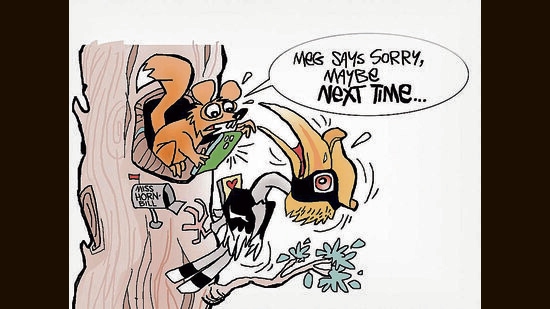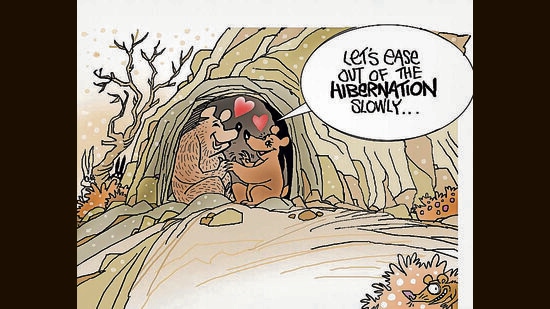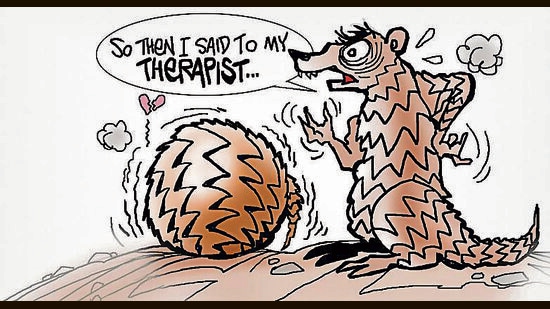Rebellion serves a vital purpose. It’s how each generation deconstructs and reshapes its world. It was probably a rebellious young person who first asked, “Why boil and not bake?” or “Why dwell and not build?” In the modern age, young people have broken down and remade outdated political systems, workplace norms, marital conventions. Gen Z is fighting labels, by making new ones of its own.
This is part of the reason there are so many terms to learn (xe, unhoused, situationship). “Do we need this many terms?” is the new “Did we always have this much divorce?” (The answers are yes, no, and also, this is what social evolution looks like.)
“We’ve finally come to realise that identities are fluid. Being able to label relationships differently comes from a degree of self-awareness and a desire for a change in how these bonds are viewed,” says Anam Farhat, an organisational psychologist and head of operations with the online therapy platform Betterlyf.
The labels also are a classification system. Amid the emotional labour that dating requires, they help the individual sort through decisions and compartmentalise, communicate to themselves and others where they stand. Here, then, are a few new terms from the world of dating and relationships.
Apocalypsing: Latching on to the nearest potential partner in a calamitous time.
The term was born amid the loneliness, uncertainty and isolation of the pandemic. Apocalypsing was listed as one of the top dating trends of 2021, by the Canadian dating app Plenty of Fish. It’s an approach to dating that is also visible among young people who have recently moved away from home. The downside: It can lead to emotional myopia and unhealthy levels of expectation. “In this crazy rush to get into a relationship and keep it going, we can forget what we want from it and why we are in it. Don’t lose sight of those questions,” advises life coach Chetna Chakravarthy.
Open-casting: Doing away with the idea of fixed parameters.

If real-world meet-cutes have taught us anything, it’s that there is no real way to algorithmise love. Open-casting is about embracing a wider range of personalities and characteristics and stepping out of one’s comfort zone, in the search for a partner. Open-casting has been forecast by Bumble as one of the likely top trends of 2023.
Soft launch: Couples who want to keep their love lives private but not a secret are considered to be in the soft-launch stage. This typically involves subtle photographs on social media sites (pictures of two coffee mugs in the morning, a sneaky elbow in an image of one’s dinner, a bunch of flowers posted without context). The soft launch is seen as a particularly helpful way to introduce a revised sexual identity to friends.

The soft launch also makes early-stage break-ups easier. There’s less of an ex’s footprint to scrub from social media, and fewer questions to answer. “Even if you are just testing the waters, though, do it offline first,” advises Chakravarthy, “because a relationship shouldn’t be defined by what the Insta-fam thinks of it.”
Hesidating: The term for people who don’t know if they want to date someone seriously, casually or at all. Also known as “onlyplans behaviour”.
This is a more courteous form of ghosting, in which one makes elaborate plans for a date only to reschedule or cancel at the last moment. People who are hesidating are probably just window-shopping, Chakravarthy says. “They’re likely not looking for anything that requires too much investment.”
Therapy-baiting: Using the experience of therapy to make oneself appear more sensitive

This comes from the need to appear more woke and evolved than one is, particularly as conversations around mental health become harder to avoid. Weaponising therapy while neglecting to do the real work, however, is considered another form of catfishing.
Infladating: The rising cost of living means that dinner, drinks and commuting to dates can really add up. Infladating is the practice of budget-conscious dating in a time of inflation. Restaurant or pub dates are replaced by first dates on video or a walk in the park. In times of infladating, conversations about money are also more open, with the aim being to establish a bond in which both partners are transparent about financial status and costs are more equitably divided.
This winter season, get Flat 20% Off on Annual Subscription Plans
Enjoy Unlimited Digital Access with HT Premium

